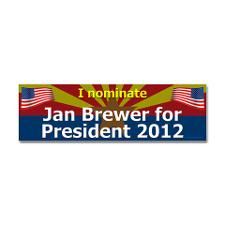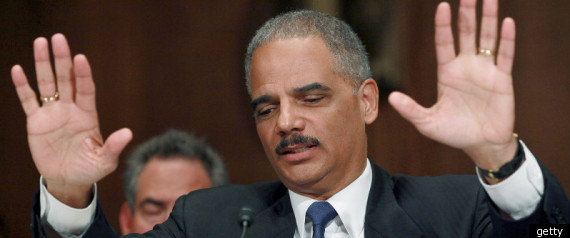Results 1 to 4 of 4
Thread Information
Users Browsing this Thread
There are currently 1 users browsing this thread. (0 members and 1 guests)
-
12-04-2011, 04:10 AM #1Senior Member


- Join Date
- May 2007
- Location
- South West Florida (Behind friendly lines but still in Occupied Territory)
- Posts
- 117,696
DEA launders Mexican profits of drug cartels
DEA launders Mexican profits of drug cartels
Some of same concerns from Fast and Furious gun program arise in these operations

Members of a forensic team stand among the slain bodies of six men at a crime scene in Monterrey on Nov. 30. Drug hitmen ordered six young men to line up against a wall and shot them, local media reported.
By GINGER THOMPSON

updated 1 hour 36 minutes ago 2011-12-04T05:12:19
WASHINGTON â Undercover American narcotics agents have laundered or smuggled millions of dollars in drug proceeds as part of Washingtonâs expanding role in Mexicoâs fight against drug cartels, according to current and former federal law enforcement officials.
The agents, primarily with the Drug Enforcement Administration, have handled shipments of hundreds of thousands of dollars in illegal cash across borders, those officials said, to identify how criminal organizations move their money, where they keep their assets and, most important, who their leaders are.
They said agents had deposited the drug proceeds in accounts designated by traffickers, or in shell accounts set up by agents.
The officials said that while the D.E.A. conducted such operations in other countries, it began doing so in Mexico only in the past few years. The high-risk activities raise delicate questions about the agencyâs effectiveness in bringing down drug kingpins, underscore diplomatic concerns about Mexican sovereignty, and blur the line between surveillance and facilitating crime. As it launders drug money, the agency often allows cartels to continue their operations over months or even years before making seizures or arrests.
Agency officials declined to publicly discuss details of their work, citing concerns about compromising their investigations. But Michael S. Vigil, a former senior agency official who is currently working for a private contracting company called Mission Essential Personnel, said, âWe tried to make sure there was always close supervision of these operations so that we were accomplishing our objectives, and agents werenât laundering money for the sake of laundering money.âJoin our efforts to Secure America's Borders and End Illegal Immigration by Joining ALIPAC's E-Mail Alerts network (CLICK HERE)
-
12-04-2011, 09:40 AM #2
Shades of the CIA, Air America and Laos during the Viet Nam war.
I am NOT impugning all CIA operatives nor Air America's pilots, but WE THE PEOPLE learned our lessons well from what went on there. The money that comes in from the sales of drugs can finance a whole lot of "black ops"...
-
12-06-2011, 01:19 PM #3Senior Member


- Join Date
- May 2007
- Location
- South West Florida (Behind friendly lines but still in Occupied Territory)
- Posts
- 117,696
Mexican Drug War: U.S. Accused Of Laundering Drug Cartel Money

WASHINGTON, DC - NOVEMBER 08: U.S. Attorney General Eric Holder testifies during a Senate Judiciary Committee Hearing about the controversial the "Operation Fast and Furious" gun running program on Capitol Hill, on November 8, 2011 in Washington, DC
The Huffington Post Gabriel Lerner
First Posted: 12/ 6/11 07:22 AM ET
Updated: 12/ 6/11 07:22 AM ET
many links on this post
In the beginning there was Fast and Furious, a botched operation carried by the Phoenix office of the Bureau of Alcohol, Tobacco, Firearms and Explosives (ATF) between 2009 and 2010, where officials at the federal agency encouraged gun shops to sell up to 1,725 assault rifles and other weapons destined for Mexican drug cartels.
In Mexico, some of the weapons were used in murders. The feds said they were using the gun runners to track down ranking members of the drug cartels and other criminal enterprises.
The revelation prompted, first, a wave of denials and bitter accusations within the government; then, a series of investigations and an admission of wrongdoing by Attorney General Eric Holder.
Now, it's happened again: the federal government, in its rush to help Mexico fight the drug cartels, toed the line separating legal and illegal. This time, according to an investigation by Ginger Thompson in the New York Times, Drug Enforcement Agency (DEA) members "laundered or smuggled millions of dollars in drug proceeds."
All this occurred, according to the paper, in the quest for the identity of the cartel leaders.
This is an ambition that, while certainly laudable, has proven irrelevant in the six-year war on drugs declared by Mexican President Felipe Calderon Hinojosa.
Every few weeks, local news outlets announce dramatic drug seizures and the arrests of local, regional, and even national cartel leaders. The crime bosses are handcuffed and paraded for the news cameras, staring straight into the lens. Before them, mounds of drugs allegedly taken during their capture. Behind them, always masked and heavily armed, soldiers or police escort them.
Then, the suspects disappear. You seldom hear about judicial process or the charges filed. After the next raid, new reputed capos are paraded for the cameras.
And when those disappear, scores of new "leaders" take their places, sometimes peacefully, sometimes with bloodshed.
While trying to achieve what years of military confrontation with the armed wings of drug cartels failed to do, the operation unveiled by the New York Times emphasizes the blurring of "the line between surveillance and facilitating crime" because "as it launders drug money, the agency often allows cartels to continue their operations over months or even years before making seizures or arrests."
But what makes this story stand out is that fact that similar operations organized by American agencies occurred in other places. After all, people close to the DEA told the Times, the operation wasn't as dangerous as running guns.
In Mexico operation such as these were forbidden in 1998 after the government learned -- only after the fact -- that an American sting operation was illegally carried out on Mexican for three years, as Julia Preston reported in the New York Times:
"The three-year undercover operation, code-named Casablanca, was described by officials of the United States Customs Services as the largest and probably the most successful in American law enforcement history. According to indictments in Los Angeles stemming from the investigation, employees of 12 Mexican banks laundered at least $110 million for drug organizations based in Colombia and Mexico."
This time, though, the operation was apparently launched after an invitation from the highest echelons of the Mexican government. That is where President Felipe Calderon considers his legacy, with national elections to replace him next July, of success or failure in his war with the drug kingpins.
Critics claim that Calderon's stubborn assault on the cartels has unleashed an unnecessary bloodbath in which close to 50,000 were killed.
However, a measure of the urgency and importance of the latest operation is that it marks a frontal assault where it hurts most: in the deep pockets of the cartels, in their financial arm.
A recent article in the Los Angeles Times by Ken Ellingwood and Tracy Wilkinson, reported from Mexico, comments on a dirty little secret known to many there: drug money shines "in gleaming high-rises in beach resorts such as Cancun, in bustling casinos in Monterrey, in skyscrapers and restaurants in Mexico City that sit empty for months. It seeps into the construction sector, the night-life industry, even political campaigns."
Actually, according to the L.A. Times, the amount of laundered money could reach $50 billion, or around 3 percent of the national economy. Last year, only 37 people were arrested for that crime.
(Other sources mention different amounts for laundered money; the "Informador" placed it at $25 billion, while the N.Y. Times story reported an "estimated $18 billion to $39 billion in drug money that flows between the countries each year."
The Calderon administration has asked the congress for restrictions on dollar transactions in an attempt to curb the money laundering.
The latest revelation, in the New York Times, didn't cause the stir that followed news last February of the Fast and Furious debacle.
Perhaps it is because, as two former DEA agents told the N.Y. Times' Thompson, there is a difference between the operations. While F&F had to do with dangerous weapons still at the hands of criminals and possibly related to the death of an American agent, their own actions dealt with "just" money.
These operations are part of the regular work the U.S. conducts in several countries. According to the N.Y. Times, there are about 50 operations of this kind around the world at any given time.
Yesterday, it was announced that Republican Rep. Darrell Issa, chairman of the House Oversight and Government Reform Committee, will investigate the operation.
Attorney General Eric Holder will appear before the Judiciary Committee of the House of Representatives on Thursday.
The conservative blog Townhall, immediately unleashed a barrage on the Obama administration, accusing Washington of not only supplying the drug cartels with weapons but also money "to carry out their operations."
Other shots at the White House followed: "Breaking: Obama Administration Caught Laundering Money For Drug Cartels" in Godlike Productions.
In a popular right-wing blog, Freerepublic.com, the story prompted comments like this: "I am starting to wonder just how many elected officials and bureaucrats are on the cartel payrolls. My guess is, it is approaching 50 percent of that bunch in Washington. And even higher among officials along the border."
Video at the page link
http://www.huffingtonpost.com/2011/12/0 ... 30917.htmlJoin our efforts to Secure America's Borders and End Illegal Immigration by Joining ALIPAC's E-Mail Alerts network (CLICK HERE)
-
12-06-2011, 08:40 PM #4Interesting observation.In a popular right-wing blog, Freerepublic.com, the story prompted comments like this: "I am starting to wonder just how many elected officials and bureaucrats are on the cartel payrolls. My guess is, it is approaching 50 percent of that bunch in Washington. And even higher among officials along the border."Support our FIGHT AGAINST illegal immigration & Amnesty by joining our E-mail Alerts at https://eepurl.com/cktGTn


 LinkBack URL
LinkBack URL About LinkBacks
About LinkBacks




 Reply With Quote
Reply With Quote

Mike Johnson betrays border security for more foreign aid
04-18-2024, 10:31 PM in illegal immigration News Stories & Reports